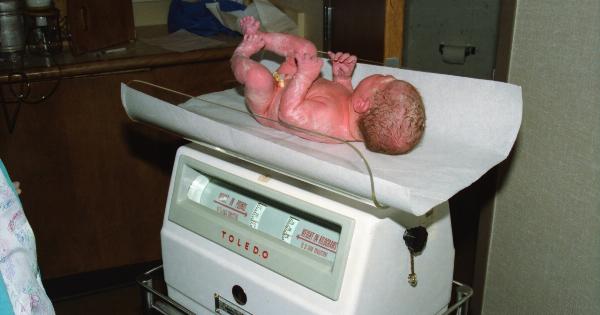Inter-pregnancy period is the time between two consecutive pregnancies in women. Maintaining a healthy weight during this period is crucial not only for the mother but also for the baby.
However, weight gain during this period has become a major concern due to numerous health issues that it can cause. This article discusses the harmful effects of weight gain during the inter-pregnancy period on the baby.
Why is maintaining a healthy weight important during the inter-pregnancy period?
Women tend to gain weight during pregnancy, and it is crucial for them to lose this weight before getting pregnant again. This is important for both physical and mental health.
First, the mother’s body needs to recover from the previous pregnancy and get back to a healthy weight before starting a new one.
This allows for optimal growth and development of the baby and reduces the risk of complications during pregnancy and delivery.
Second, being overweight or obese during pregnancy increases the risk of gestational diabetes, gestational hypertension, pre-eclampsia, and cesarean delivery.
These conditions can all have serious negative effects on the baby’s health, including premature birth, low birth weight, and respiratory problems.
Third, being overweight or obese during pregnancy can also lead to long-term health risks for the baby, including an increased risk of obesity, diabetes, and heart disease later in life.
What are the harmful effects of weight gain during the inter-pregnancy period on the baby?
Weight gain during the inter-pregnancy period can have harmful effects on the baby’s health. Some of the harmful effects are discussed below:.
1. Increased risk of preterm birth
A study conducted by the American Journal of Obstetrics and Gynecology found that women who gained weight during the inter-pregnancy period were more likely to have preterm birth.
Preterm birth can lead to numerous complications, including respiratory distress syndrome, neurological problems, and developmental delays.
2. Increased risk of low birth weight
According to a study published in Obstetrics and Gynecology, women who gained weight during the inter-pregnancy period had a higher risk of having a baby with low birth weight.
Low birth weight can lead to numerous complications, including respiratory problems, bleeding in the brain, and long-term developmental delays.
3. Increased risk of congenital anomalies
Studies have found that women who gained weight during the inter-pregnancy period had a higher risk of giving birth to a baby with congenital anomalies.
Congenital anomalies are birth defects that occur during fetal development and can have serious long-term effects on the baby’s health.
4. Increased risk of childhood obesity
A study published in the International Journal of Pediatric Obesity found that children born to mothers who gained weight during the inter-pregnancy period were more likely to become overweight or obese later in life.
Childhood obesity can lead to numerous health problems, including diabetes, heart disease, and high blood pressure.
5. Increased risk of maternal obesity and diabetes
Weight gain during the inter-pregnancy period can also increase the risk of maternal obesity and diabetes.
This can have serious long-term effects on the mother’s health, including an increased risk of heart disease, stroke, and other chronic conditions.
Conclusion
In conclusion, weight gain during the inter-pregnancy period has numerous harmful effects on the baby’s health.
Maintaining a healthy weight during this period is crucial to reduce the risk of preterm birth, low birth weight, congenital anomalies, childhood obesity, and maternal obesity and diabetes. Women should take steps to maintain a healthy weight during the inter-pregnancy period, including eating a healthy diet, engaging in regular exercise, and seeking advice from healthcare providers.






























